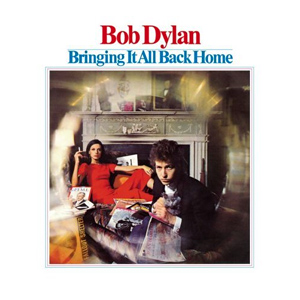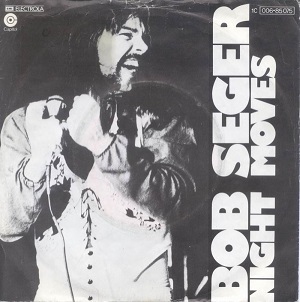External links
| Albums | |
|---|---|
| EPs | |
| Limited edition albums |
|
| Singles | |
| Featured singles | |
| Related articles | |
| "Bridge To Nowhere" | ||||
|---|---|---|---|---|
| Single by Sam Roberts | ||||
| from the album Chemical City | ||||
| Released | 2006 | |||
| Genre | Alternative rock, folk rock | |||
| Length | 3:09 | |||
| Label | Universal Music Canada | |||
| Songwriter(s) | Sam Roberts | |||
| Producer(s) | Joseph Donovan | |||
| Sam Roberts singles chronology | ||||
| ||||
"Bridge to Nowhere" is a rock song by Canadian musician Sam Roberts. It is the second single from Sam Robert's second album Chemical City .
The song has a fast tempo and is in a 6/4 musical meter. The song features acoustic guitar, electric guitar, electric piano, and tambourine giving it a folk rock sound. Its lyrics describe a troubled man dealing with everyday life, and its video depicts similar themes.
The video itself is shot solely in black and white and relies on computer animation for its setting. The video begins with Sam Roberts waking up in bed with a woman (who would appear to be his wife) and then following his venture to work as he ponders the workings of life. He sees police cars pass him as he walks to the train station, and sees them once more where an accident seems to have happened. He gets onto a futuristic locomotive which takes him to the downtown of the "Chemical City" where he goes to work in the biggest tower. He takes a long elevator ride up, looking at the people below him walking on their own paths as well. He listens to the company's boss (a woman partially hidden in shadows) until he leaves work and goes home to bed. He awakes once more and follows the same schedule to and from work, until his departure from work the second time, when the song quickens, and then slows down suddenly, and a flash of light hits and the city is gone, leaving a beautiful valley which most likely stood there before the city's construction.

The Electric Light Orchestra (ELO) is an English rock band formed in Birmingham in 1970 by songwriters and multi-instrumentalists Jeff Lynne and Roy Wood with drummer Bev Bevan. Their music is characterised by a fusion of pop and classical arrangements with futuristic iconography. After Wood's departure in 1972, Lynne became the band's sole leader, arranging and producing every album while writing nearly all of their original material. From this point until their first break-up in 1986, Lynne, Bevan, and keyboardist Richard Tandy were the group's only consistent members.

Robert Leroy Johnson was an American blues musician and songwriter. His landmark recordings in 1936 and 1937 display a combination of singing, guitar skills, and songwriting talent that has influenced later generations of musicians. Although his recording career spanned only seven months, he is recognized as a master of the blues, particularly the Delta blues style, and one of the most influential musicians of the 20th century. The Rock and Roll Hall of Fame describes him as perhaps "the first ever rock star".

Neil Percival Young is a Canadian-American singer and songwriter. After embarking on a music career in Winnipeg in the 1960s, Young moved to Los Angeles, joining the folk-rock group Buffalo Springfield. Since the beginning of his solo career, often with backing by the band Crazy Horse, he has released critically acclaimed albums such as Everybody Knows This Is Nowhere (1969), After the Gold Rush (1970), Harvest (1972), On the Beach (1974), and Rust Never Sleeps (1979). He was also a part-time member of Crosby, Stills, Nash & Young, with whom he recorded the chart-topping 1970 album Déjà Vu.

Bringing It All Back Home is the fifth studio album by American singer-songwriter Bob Dylan. It was released in March 1965 by Columbia Records. In a major transition from his earlier sound, it is Dylan's first album to incorporate electric instrumentation, causing controversy and dividing many in the contemporary folk scene.

Samuel John "Lightnin" Hopkins was an American country blues singer, songwriter, guitarist and occasional pianist from Centerville, Texas. In 2010, Rolling Stone magazine ranked him No. 71 on its list of the 100 greatest guitarists of all time.

William Everett Preston was an American keyboardist, singer and songwriter whose work encompassed R&B, rock, soul, funk, and gospel. Preston was a top session keyboardist in the 1960s, backing Little Richard, Sam Cooke, Ray Charles, the Everly Brothers, Reverend James Cleveland, the Beatles and the Rolling Stones. He gained attention as a solo artist with hit singles "That's the Way God Planned It", the Grammy-winning "Outa-Space", "Will It Go Round in Circles", "Space Race", "Nothing from Nothing", and "With You I'm Born Again". Additionally, Preston co-wrote "You Are So Beautiful", which became a #5 hit for Joe Cocker.

Sam Roberts is a Canadian rock singer-songwriter who has released seven albums. His debut EP The Inhuman Condition, reached the Canadian charts in 2002. He and his bandmates have released three albums as Sam Roberts and four albums as Sam Roberts Band. He is also a member of Canadian group Anyway Gang, who released their debut self-titled album in 2019. Roberts has been nominated, together with his band, for fifteen Juno Awards, winning six, including Artist of the Year twice and Album of the Year once (2004).

Everybody Knows This Is Nowhere is the second studio album by Canadian-American musician Neil Young, released in May 1969 on Reprise Records, catalogue number RS 6349. His first with longtime backing band Crazy Horse, it emerged as a sleeper hit amid Young's contemporaneous success with Crosby, Stills, Nash & Young, ultimately peaking at number 34 on the US Billboard 200 in August 1970 during a 98-week chart stay. It has been certified platinum by the RIAA.

"Like a Rolling Stone" is a song by American singer-songwriter Bob Dylan, released on July 20, 1965, by Columbia Records. Its confrontational lyrics originated in an extended piece of verse Dylan wrote in June 1965, when he returned exhausted from a grueling tour of England. Dylan distilled this draft into four verses and a chorus. "Like a Rolling Stone" was recorded a few weeks later as part of the sessions for the forthcoming album Highway 61 Revisited.

"Down by the River" is a song composed by Neil Young. It was first released on his 1969 album with Crazy Horse, Everybody Knows This Is Nowhere. Young explained the context of the story in the liner notes of his 1977 anthology album Decade, stating that he wrote "Down by the River," "Cinnamon Girl" and "Cowgirl in the Sand" while delirious in bed in Topanga Canyon with a 103 °F (39 °C) fever.

"Innuendo" is a song by the British rock band Queen. Written by Freddie Mercury and Roger Taylor but credited to Queen, it is the opening track on the album of the same name (1991), and was released as the first single from the album. The single debuted at number one on the UK Singles Chart in January 1991, the band's first number-one hit since "Under Pressure" in 1981, and additionally reached the top ten in ten other countries. It is included on the band's second compilation album Greatest Hits II. It was described as "the band's first complex work released after the 1970s".

"Night Moves" is a song by American singer-songwriter Bob Seger. It was the lead single from his ninth studio album of the same name (1976), which was released on Capitol Records. Seger wrote the song as a coming of age tale about adolescent love and adult memory of it. It was based on Seger's own teenage love affair he experienced in the early 1960s. It took him six months to write and was recorded quickly at Nimbus Nine Studios in Toronto, Ontario, with producer Jack Richardson. As much of Seger's Silver Bullet Band had returned home by this point, the song was recorded with several local session musicians.

"Jessica" is an instrumental piece by American rock band the Allman Brothers Band, released in December 1973 as the second single from the group's fourth studio album, Brothers and Sisters (1973). Written by guitarist Dickey Betts, the song is a tribute to gypsy jazz guitarist Django Reinhardt, in that it was designed to be played using only two fingers on the left hand.

Chemical City is the second studio album by Canadian musician Sam Roberts, released in Canada on April 11, 2006, and in the United States on May 16, 2006. The album debuted at number three on the Canadian Albums Chart, selling 10,000 units in its first week. The album was certified Platinum in Canada on May 17, 2018. The album had three singles: "The Gate", "Bridge To Nowhere", and "With a Bullet".

"Mother" is a song by English musician John Lennon, first released on his 1970 album John Lennon/Plastic Ono Band. An edited version of the song was issued as a single in the United States on Apple Records, on 28 December 1970. The single edit runs 1:41 shorter than the album due to removing the tolling bells that start the song and a quicker fade-out. The B-side features "Why" by Yoko Ono. The song peaked in the United States at number 19 on the Cashbox Top 100 and number 43 on the Billboard Hot 100. In Canada the song reached number 12.

"Take It Easy" is the debut single by the American rock band Eagles, written by Jackson Browne and Eagles band member Glenn Frey, who also provides lead vocals. It was released on May 1, 1972, and peaked at No. 12 on the Billboard Hot 100 chart on July 22, 1972. It was also the opening track of the band's eponymous debut album and has become one of their signature songs, included on all of their live and compilation albums. It is listed as one of The Rock and Roll Hall of Fame's 500 Songs that Shaped Rock and Roll.

"Rock Me Tonite" is a hit song written and recorded by American rock artist Billy Squier. It was released in June 1984 as the lead single from his platinum-plus album Signs of Life. The song is Squier's highest charting U.S. single, peaking at No. 15 on the Billboard Hot 100 and hitting No. 10 on the Cash Box singles chart. It also returned him to No. 1 on the Top Rock Tracks chart in August 1984.

"Smuggler's Blues" is a song written by Glenn Frey and Jack Tempchin, and performed by Frey. It was the third and final single from Frey's second studio album, The Allnighter (1984). It followed "Sexy Girl" and "The Allnighter"; of the three, it charted highest. Its music video won Frey an MTV Video Music Award in 1985.
"Mixed Signals" is a song recorded by English singer Robbie Williams for his eleventh studio album, The Heavy Entertainment Show (2016). It was written by American band The Killers and was produced by Stuart Price. Influenced by 1980s music, "Mixed Signals" is a pop rock and soft rock song accompanied with synthesizers usually present in tracks from the 2000s. It received generally favourable reviews from music critics, who highlighted the song on the album and compared it to the previous works by The Killers. Robbie's girlfriend is played by Top London Model, Kirsty Rose Heslewood.

"Kyoto" is a song by American singer-songwriter Phoebe Bridgers. It was released on April 9, 2020 as the second single from her second studio album, Punisher (2020). Rolling Stone, Billboard, Paste, Variety, Consequence of Sound, and The Line of Best Fit all ranked the song among the best of 2020, the latter placing the song atop its list. At the 2021 Grammy Awards, "Kyoto" was nominated for Best Rock Performance and Best Rock Song.